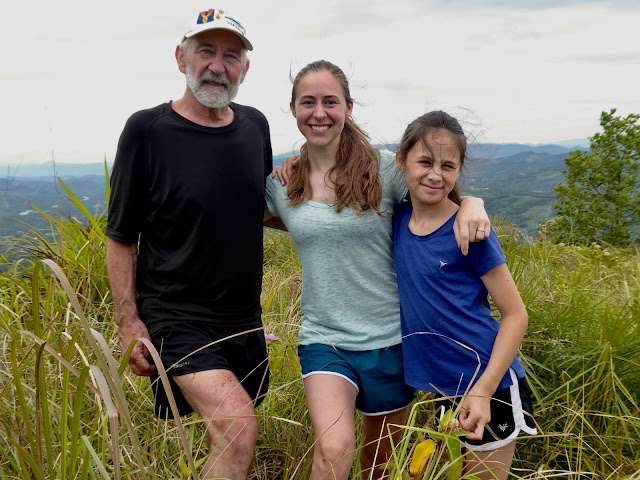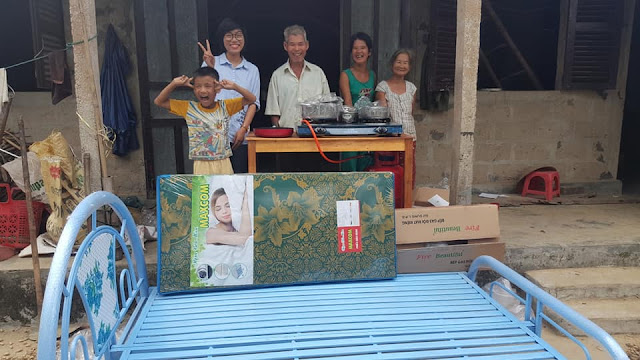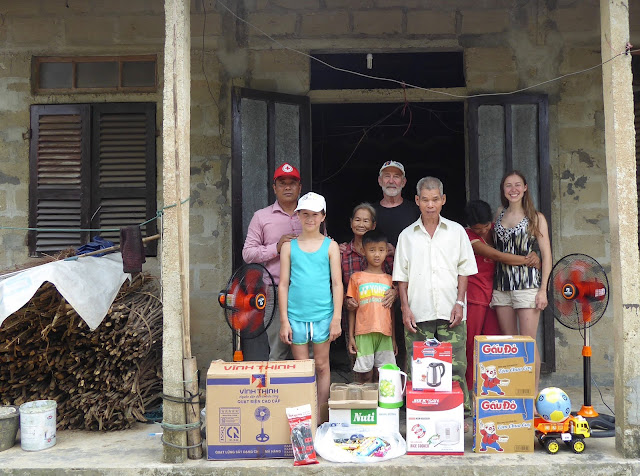June 16 Getting It Off My Chest (Neil)
He
was, I thought, a pathetic, ineffective leader of combat troops. The disdain for this pompous captain was so universal that
author Keith Nolan used an alias in referencing him throughout his writing of “Magnificent Bastards”. He was
my company commander (CO) from arrival in Feb ’68 until sometime in May, when
his final act of reckless, arrogant disregard for his men ended in two men from my
squad being killed and three wounded while on a night listening post (LP). Another was at Nhi Ha, when he tried his
best to sacrifice another LP, including me, to the whims of a large NVA force.
I’ll restrict this discussion to these two events, as I can relate to both in a
most intimate way. Both churned through my mind through the night, prompting
this very real need to “get it off my chest”.
It
was maybe May 8 or 9, a couple days following the May 6 Nhi Ha battle that
resulted in the loss of many men, that I and four others were ordered to pull
night LP duty . An LP’s function is to serve as an early warning for our
main perimeter force of an enemy advance. When enemy movement towards the
perimeter is observed, an attack is in progress, prompting the LP to radio in
the event before making its way back to the main force. Its function, to warn
the perimeter, has been served. Its job is not to make contact, as such would most
likely result in annihilation due to the enemy’s numerical advantage. However,
if discovered, the LP must engage the enemy with all resources available….M-16
rifle, M-79 grenade launcher, hand grenades, and…in desperate circumstances…a
bayonet You’re on your own, as no
others will be sent to help. In a sense, it’s sacrificial with 4-5 men serving
to minimize casualties for the main force. In my company, you pulled either LP
or ambush every third night.
Although
tagged for LP the night of May 6, I was again selected May 8 or 9. With a copy
of “Magnificent Bastards”, which details the event, I could nail down the exact
date. Just after dark, five of us “saddled up” in light gear, which basically
means sans rusksack, and quietly worked our way over flat terrain to a bomb
crater not far from Jones Creek. There we waited, listening and observing.
In this image, I'm standing near my former bunker position with Jones Creek beyond. This gives you an idea as the distance from the main-force perimeter to our LP position.
At Nhi Ha, it wasn’t “if” an enemy attack would occur. Rather, it was “when”. Before long, large groups of NVA could be seen rising up from Jones Creek and moving towards us in an obvious attack on the main force perimeter. With 2nd platoon leader Lt. Smith seriously wounded and evacuated May 6, we instead radioed our company commander to advise of the sizable enemy force moving towards the perimeter. Having performed our function, protocol would be to attempt return to the perimeter before the advancing enemy spotted/reached us. I had been on many, many LPs and know the drill. The company commander should have immediately granted permission for us to attempt return. Instead, to my amazement, the radio transmission went like this:
In this image, I'm standing near my former bunker position with Jones Creek beyond. This gives you an idea as the distance from the main-force perimeter to our LP position.
 |
| Nhi Ha Bunker Position-Jones Creek Beyond |
 |
| My Bunker at Nhi Ha |
At Nhi Ha, it wasn’t “if” an enemy attack would occur. Rather, it was “when”. Before long, large groups of NVA could be seen rising up from Jones Creek and moving towards us in an obvious attack on the main force perimeter. With 2nd platoon leader Lt. Smith seriously wounded and evacuated May 6, we instead radioed our company commander to advise of the sizable enemy force moving towards the perimeter. Having performed our function, protocol would be to attempt return to the perimeter before the advancing enemy spotted/reached us. I had been on many, many LPs and know the drill. The company commander should have immediately granted permission for us to attempt return. Instead, to my amazement, the radio transmission went like this:
LP:
Sizable enemy force moving from Jones Creek towards perimeter. Request
permission to re-enter perimeter.
CO:
Permission denied. Stay out there and observe.
LP:
Say again.
CO:
Stay out there and observe. If you try to come in, I’ll shoot you myself.
That
piece of crap officer basically wrote us off. The large force of enemy soldiers
quickly arrived at our bomb crater position…obviously a major assault. Somehow
they moved right past us and towards our main force bunkers without a clue as to
our existence. It was downright harrowing and I recall thinking that my luck
had finally run out. If discovered, we resolved to fight back until out of ammo or
dead. Minutes later, the battle was raging with the five of us stuck beyond. It
isn’t supposed to work that way. Complicating matters were artillery
illumination rounds bursting overhead. This might have been a significant
advantage to the men in our perimeter bunkers, as it made the attacking enemy
more visible. But, for us, it was like being handed to the enemy. As the battle
raged, and with bullets streaming past us from our own men (remember, the NVA are
between us and the perimeter), another radio transmission came through. To the
best of my recollection, it went like this:
CO-
Blackhawk One, permission to re-enter perimeter granted.
LP-
Declined.
CO-
Say again.
LP-
Declined.
No way in hell. Then
we turned off the radio, as it wasn’t going to do us a damn bit of good
thereafter. How in the world could we move through hundreds of enemy troops
into our own perimeter in the midst of a major engagement, illumination rounds
spotlighting us, without being killed by either the NVA or our own men? It
would be suicide, pure and simple. So, we stayed put. Sgt. Green, with an LP on
the opposite side of the perimeter, accepted permission to re-enter and died in
the process. It was years later that I learned why the shithead CO finally
radioed re-entry permission. When Lt. Gibbs, Alpha company executive officer (XO),
had received the May 6 report of our 14 MIA’s (listed as such, as the bodies
were still on the field of battle), he immediately choppered out to find out
what the hell was going on. He was in the CO’s bunker when our permission to
re-enter was denied. The lieutenant and captain exchanged words, Gibbs was furious
at the CO’s absurd order and callous disregard. The exchange went something
like this:
CO
to LP: Stay out there and observe. If you try to come in, I’ll shoot you
myself.
Lt.
Gibbs to CO: If you don’t let them re-enter, I’ll shoot YOU myself.
That
is what prompted the captain to radio permission, which we declined. By then it was too late. Sgt. Stone,
aka Stoney, heard the entirety of the communication between my LP and the CO on
his radio and can attest to its accuracy.
So,
we’re still stuck out in that bomb crater with the battle continuing. We had
been very fortunate to have evaded discovery by the advancing enemy. But, with
dawn not far off, the surviving NVA would be pulling back to Jones Creek…and
right past us. With illumination rounds still coming in from U. S. Navy ships in
nearby South China Sea, our survival odds were miserable. With the NVA’s
pre-dawn disengagement underway, numerous enemy troops moved past us towards
Jones Creek. Hearts pounding and ready for whatever our fate might be, we attempted
to move into the bomb crater’s shadows, out of direct illumination from the
flares. Again, somehow we weren’t detected. If they had even a hint of our
existence, we’d have been wounded & captured or killed. When
it was obvious that the NVA had all made it to Jones Creek and beyond, we
started working our way towards the perimeter. But, each time we tried to crawl
or scamper, the enemy would fire on us. We’d lie low, then try to make
progress. Again, small arms fire would force us to the ground. Foot by foot, we
gradually worked our way far enough to where it was felt that the enemy fire wouldn’t
be too effective. We’d jump up and run until the bullets put us down…again and
again. NVA bodies littered our path. When we eventually made it back to the bunkers of the main force, our
guys were either out of ammo or very low. They could observe our up and down
movement from our bomb crater position all the way into the perimeter. I think
everyone was surprised, having assumed that we didn’t survive the night.
This image provides an idea as to where our LP was through the night. The NVA artillery blasts are on our main-force bunker perimeter. Jones Creek is evident in the foreground. My LP was in one of the bomb craters near Jones Creek.
That disgusting, sorry-assed company commander came mighty close to leaving Nhi Ha with a toe tag. A court martial was in order, at least. It was another month until his actions resulted in his being relieved of field command, a lethal blow for a “lifer”.
That disgusting, sorry-assed company commander came mighty close to leaving Nhi Ha with a toe tag. A court martial was in order, at least. It was another month until his actions resulted in his being relieved of field command, a lethal blow for a “lifer”.
It
was just a week after returning from the DMZ to our regular AO. During
our almost three-week absence, the NVA had increased their numbers
significantly. On the evening of May 24 we had dug in for the night and were
sending out the customary LP and ambush groups.
I was saddled up in light gear along with four other members of my squad, ready to work our way out to set up an LP a short distance from the perimeter. Just before moving out, it was decided that newly-arrived Sgt. Patterson, who “needed the experience,” would go in my place. So, the five men set out to establish the LP as darkness fell. Not long after lying down by my foxhole tracer rounds were streaking through our position as the enemy attacked. After calling in the initial enemy movement, our LP crawled its way back into the perimeter. However, in the process they dropped a starlight scope, a device used to enhance night vision. It’s carried in a green bag, so the chance of the enemy stumbling across it in the darkness and heat of battle was pretty slim. Nevertheless, with the battle raging, our despised company commander ordered the LP back out to retrieve the scope. It was then that either a satchel charge or grenade took out the entire LP…Patterson (who had taken my place) and McFadden were killed on site, with the other three seriously wounded. The CO decided that we pack up and abandon our perimeter and move through the night to our previous night’s position. I carried a corner of the poncho containing one of our wounded through this disorganized exodus. The decision to send our guys back out for the scope was flawed, as was making an exposed & vulnerable mass exodus through the night. I recall thinking, “This is just plain insane”. Those asinine moves resulted in the captain, our CO, being relieved of field command. My squad had been reduced from ten men to five.
 |
| Digging Foxholes |
I was saddled up in light gear along with four other members of my squad, ready to work our way out to set up an LP a short distance from the perimeter. Just before moving out, it was decided that newly-arrived Sgt. Patterson, who “needed the experience,” would go in my place. So, the five men set out to establish the LP as darkness fell. Not long after lying down by my foxhole tracer rounds were streaking through our position as the enemy attacked. After calling in the initial enemy movement, our LP crawled its way back into the perimeter. However, in the process they dropped a starlight scope, a device used to enhance night vision. It’s carried in a green bag, so the chance of the enemy stumbling across it in the darkness and heat of battle was pretty slim. Nevertheless, with the battle raging, our despised company commander ordered the LP back out to retrieve the scope. It was then that either a satchel charge or grenade took out the entire LP…Patterson (who had taken my place) and McFadden were killed on site, with the other three seriously wounded. The CO decided that we pack up and abandon our perimeter and move through the night to our previous night’s position. I carried a corner of the poncho containing one of our wounded through this disorganized exodus. The decision to send our guys back out for the scope was flawed, as was making an exposed & vulnerable mass exodus through the night. I recall thinking, “This is just plain insane”. Those asinine moves resulted in the captain, our CO, being relieved of field command. My squad had been reduced from ten men to five.
The
following morning we choppered out our dead and wounded, then moved back to the
battle site and buried Larry McFadden’s arm and sleeve. Larry and I were in the same squad from my February arrival to Alpha company until his death. That afternoon we
walked into an ambush, fighting our way out. Towards evening, as usual, we dug
foxholes to establish our perimeter, set out claymore mines, and sent out the
LP and ambush groups. Again, we were attacked during the night. A shell hit a
tree above my squad’s position, wounding four of our five remaining members… leaving
just me. I recall the pressure of the blast pushing me down in the foxhole, shrapnel
hitting my helmet, and the screams of the men around me. My rucksack, lying
behind the foxhole, was riddled.
1968 was one long year….
1968 was one long year….






Comments
Post a Comment